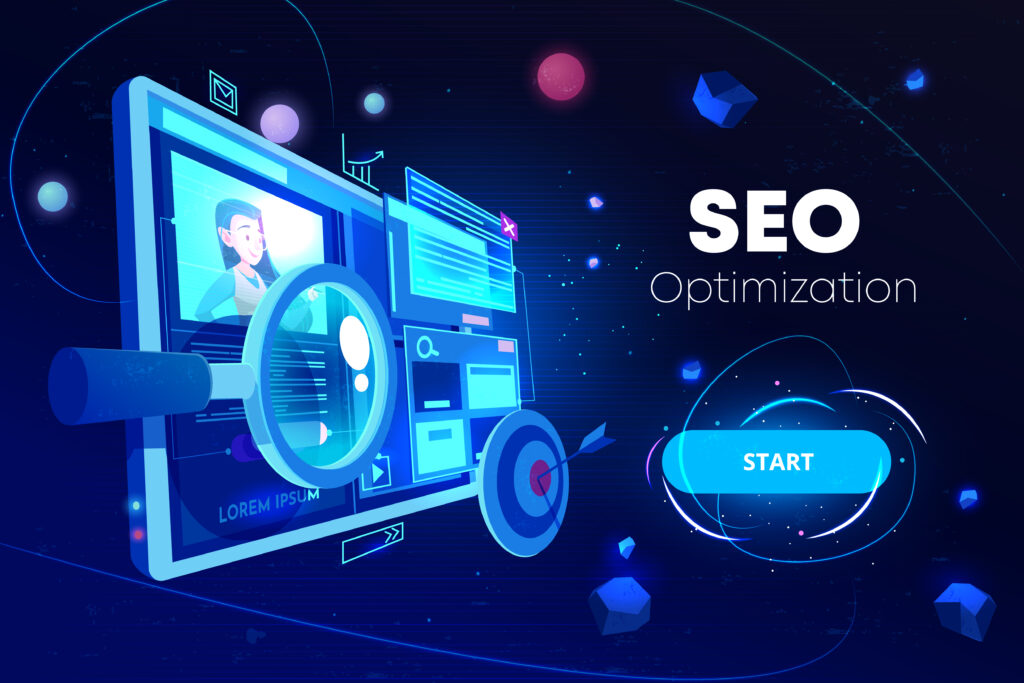
Enterprise SEO Guide: Strategies for Large-Scale Success
In the world of digital marketing, Enterprise SEO is a critical strategy for large organizations looking to dominate search engines and increase online visibility. Unlike traditional SEO practices, enterprise SEO focuses on managing large websites with thousands of pages and high-volume search terms. In this guide, we’ll cover key strategies for large-scale success and how enterprise businesses can achieve top rankings on search engines like Google.
What is Enterprise SEO?
Enterprise SEO is the process of implementing large-scale, data-driven search engine optimization strategies for websites with extensive web pages, multiple departments, or global reach. This type of SEO typically requires a team of specialists, advanced tools, and a deep understanding of algorithmic updates.
Keywords: Enterprise SEO, large-scale SEO, SEO strategy for big businesses, enterprise SEO solutions.
Why is Enterprise SEO Important?
For large businesses, a basic SEO approach won’t suffice. The complexity of managing SEO across multiple product pages, categories, and even regions means that a more sophisticated approach is necessary. With enterprise SEO strategies, businesses can:
- Improve search engine rankings across a vast number of keywords.
- Drive organic traffic at scale.
- Enhance their visibility in competitive markets.
- Improve site performance, which directly impacts search rankings.
Keywords: enterprise SEO importance, SEO for large businesses, organic traffic growth.
Key Strategies for Enterprise SEO Success
1. Comprehensive Keyword Research
At the enterprise level, targeting high-value keywords is essential for capturing a large audience. A robust keyword strategy should include:
- Targeting long-tail keywords that have less competition but higher intent.
- Utilizing data-driven tools like SEMrush, Ahrefs, and Google Keyword Planner to find relevant keywords.
- Optimizing for branded keywords and product-specific terms.
Keywords: enterprise keyword research, long-tail keywords, branded keyword SEO.
2. Technical SEO Optimization
A strong technical foundation is key to large-scale SEO success. Enterprises should focus on:
- Ensuring the site is mobile-friendly with responsive design.
- Implementing structured data for rich snippets.
- Optimizing site speed using tools like Google PageSpeed Insights.
- Fixing duplicate content, broken links, and crawl errors with SEO auditing tools like Screaming Frog or DeepCrawl.
Keywords: technical SEO for enterprise, mobile SEO, site speed optimization, SEO audit tools.
3. Content Strategy at Scale
Content is still king, but for enterprise SEO, creating content at scale is essential. Here’s how to develop a winning content strategy:
- Focus on topic clusters and pillar pages to create a content hierarchy.
- Publish both informational and transactional content to address various stages of the buyer’s journey.
- Regularly update and refresh outdated content to maintain relevance.
Keywords: enterprise content strategy, pillar pages SEO, scaling content production, content refresh SEO.
4. Local SEO for Multi-Location Businesses
For businesses with multiple locations, a solid local SEO strategy is critical for ranking in local searches. Steps to optimize local SEO include:
- Creating and optimizing Google Business Profiles for each location.
- Ensuring consistency of NAP (name, address, phone number) information across all directories.
- Building local backlinks and acquiring customer reviews.
Keywords: local SEO for enterprise, Google Business Profiles, multi-location SEO, NAP consistency.
5. Link Building at Scale
Link building remains a top-ranking factor for Google. For enterprise businesses, it’s important to scale link-building efforts while maintaining quality:
- Collaborating with influencers and authoritative websites in your industry.
- Utilizing tools like HARO (Help a Reporter Out) to earn backlinks from media outlets.
- Creating shareable, high-value content like infographics, whitepapers, and case studies.
Keywords: enterprise link building, backlink strategies, influencer marketing SEO, HARO SEO.
6. Automating SEO Tasks
Automation can help enterprises manage large-scale SEO operations more efficiently. By automating tasks like reporting, rank tracking, and technical SEO monitoring, businesses can save time and focus on strategy:
- Use tools like SEO PowerSuite, Moz Pro, or Ahrefs for automated SEO tasks.
- Implement content automation for keyword research and competitive analysis.
- Set up automated alerts for algorithm updates or ranking changes.
Keywords: SEO automation tools, enterprise SEO tools, automated SEO reporting, algorithm tracking.
7. Global SEO for International Reach
If your enterprise operates globally, you’ll need to optimize for international SEO:
- Implement hreflang tags to target specific languages and regions.
- Localize content for different countries to improve relevance.
- Ensure fast load times globally by using content delivery networks (CDNs).
Keywords: global SEO strategies, hreflang tags SEO, international SEO, CDN for enterprise SEO.
Measuring and Analyzing Enterprise SEO Success
For ongoing success, it’s important to regularly track and measure SEO performance using enterprise SEO analytics tools like:
- Google Analytics 4 for tracking organic traffic and user behavior.
- Google Search Console for monitoring site health and indexing issues.
- Ahrefs or SEMrush for detailed keyword tracking and competitor analysis.
Keywords: enterprise SEO analytics, Google Analytics 4 SEO, keyword tracking tools, SEO performance metrics.
Final Thoughts
Enterprise SEO is a complex, multifaceted strategy that requires the right tools, team, and approach to be successful. By focusing on comprehensive keyword research, technical SEO optimization, scaling content production, and local SEO strategies, large businesses can enhance their organic visibility and achieve sustainable, long-term growth.
